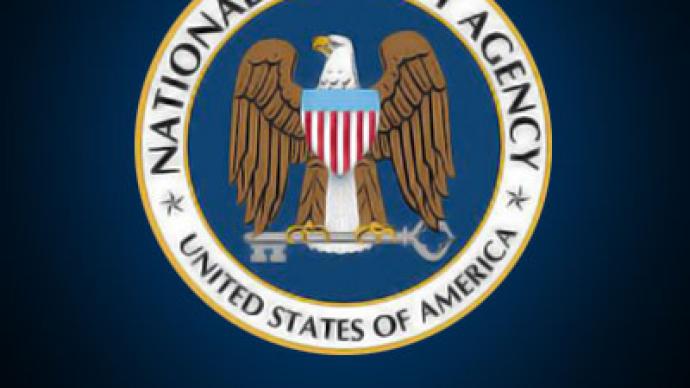The US Justice Department is being sued after failing to adhere to Freedom of Information Act requests for documents on a federal surveillance program that has targeted the email and phone conversations of Americans throughout the last five years.
The Electronic Frontier Foundation, a San Francisco-based advocacy groups that fights to protect civil liberties in the digital age, filed a lawsuit on Thursday this week that names the Department of Justice as the sole defendant. The EFF charges that the DoJ violated the Freedom of Information Act, or FOIA, by failing to expedite previous requests filed with the government for documents relating to a 2008 amendment included in the Foreign Intelligence Surveillance Act. Under that year’s update to FISA, feds were awarded legal wiggle room to collect and comb through any communication originating in the United States that is sent abroad through email or phone, all under the guise of national security. The EFF and others attest that the government has extensively violated the US Constitution by doing as such, though, and is now suing the DoJ not for ongoing abuse of the Fourth Amendment’s protection against unreasonable search and seizure, but for the department’s failure to quickly honor the FOIA request and for wrongful withholding of agency records.“The FISA Amendments Act (FAA) of 2008 gave the NSA expansive power to spy on Americans' international email and telephone calls,” the EFF explains in an official statement to the media that was released in conjunction with this week’s lawsuit. “However, last month, in a letter to Senator Ron Wyden, a government official publicly disclosed that the NSA's surveillance had gone even further than what the law permits, with the Foreign Intelligence Surveillance Court (FISC) issuing at least one ruling calling the NSA's actions unconstitutional.”In the DoJ complaint filed on Thursday, the EFF quotes Kathleen Turner from the Office of the Director of National Intelligence, who in July 2012 provided Sen. Wyden with a classification review of three statements concerning Section 702 of the FAA. Although the director wrote to the lawmaker by first acknowledging that her office found that some intelligence collected by the National Security Administration was “reasonable under the Fourth Amendment,” she added, “It is also true that on at least one occasion the [FISC] held that some collection carried out pursuant to the Section 702 minimization procedures used by the government was unreasonable under the Fourth Amendment.”“I believe that the government’s implementation of Section 702 of FISA has sometimes circumvented the spirit of the law, and on at least one occasion the [FISC] has reached this same conclusion,” Ms. Turner writes in the letter, dated July 20 of this year.“This disclosure confirmed previous reports that Section 702 surveillance had ‘intercepted the private e-mail messages and phone calls of Americans . . . on a scale that went beyond the broad legal limits established by Congress’,” the EFF writes, referencing a 2009 article published in the New York Times that was among one of the first of few mainstream write-ups on the blanketing surveillance program.In a press release, EFF Open Government Legal Fellow Mark Rumold says, "For years we've seen news reports in the New York Times and other outlets about widespread government spying going beyond the broad powers granted in the FAA, but we've yet to get any real answers about what is going on.”"When law-breaking is allowed to remain secret, there's no accountability or way to monitor future abuses. It's time for the government to come clean and tell us about the NSA's unconstitutional actions,” Rumold adds.On July 26, 2012, the EFF filed a FOIA request for any written opinion or order that referred to the collection of intelligence by the federal government under Section 702. The EFF notes in this week’s complaint that they sought an expedited return of the requested records as allowed under the Freedom of Information Act, yet more than one month later has not received any of the requested evidence. “Not only has Defendant failed to expedite the processing of Plaintiff’s requests, it has also exceeded the generally applicable twenty-day deadline for the processing of any FOIA request,” the EFF writes. In May of this year, Sen. Wyden signed his name to a letter sent to the NSA co-authored by Sen. Mark Udall asking for the agency to identify exactly “how many people inside the United States have had their communications collected or reviewed under the authorities granted by section 702” of the FISA Amendment Act. When the NSA responded one month later, Inspector General I. Charles McCullough wrote that a “review of the sort suggested would itself violate the privacy of US persons.”“All that Senator Udall and I are asking for is a ballpark estimate of how many Americans have been monitored under this law, and it is disappointing that the Inspectors General cannot provide it,” Sen. Wyden responded to Wired’s Danger Room at the time. “If no one will even estimate how many Americans have had their communications collected under this law then it is all the more important that Congress act to close the ‘back door searches’ loophole, to keep the government from searching for Americans’ phone calls and emails without a warrant.”The EFF is demanding that the Justice Department immediately process the records previously requested under FOIA and are asking for the feds to compensate them for any attorney fees incurred in their lawsuit against the government. "As Congress gears up to reconsider the FAA, the American public needs to know how the law has been misused," EFF Senior Counsel David Sobel says. "The DOJ should follow the law and release this information to the American public."

